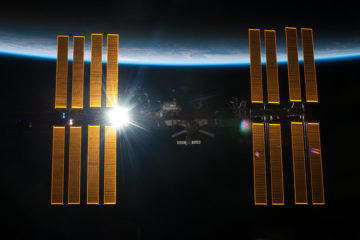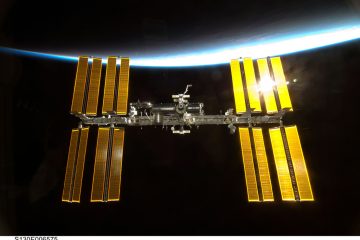
OxPol Blogcast Episode 6: The Space Debris Problem
Welcome to the OxPol Blogcast, a podcast where we will be sharing research, analysis, and experiences from members of the University of Oxford’s Department of Politics and International Relations. On each, episode we will talk to a guest about a piece they’ve written for the OxPol Blog. Then, we’ll discuss their larger research agenda, their insights on conducting political science, and their time at Oxford. On this episode of the OxPol BlogCast, host Chase Harrison talks to MPhil graduate Samantha Potter about the space debris problem, the laws and procedures that govern outer space, and what it looks like to do space research at Oxford. Read the original blog post here: blog.politics.ox.ac.uk/what-chinas-f…bris-problem/ This work is the author’s own and does not …

What China’s Falling Rocket Tells Us About the Increasing Orbital Space Debris Problem
In early May, the international community held its breath as China’s Long March 5B rocket plummeted uncontrollably back to earth. While the debris landed safely in the Indian Ocean, silencing concerns about a potentially dangerous impact, the increasing frequency of uncontrolled re-entries highlights the importance of state responsibility in safely disposing of space debris. This is not the first time China neglected to dispose properly of its orbital debris. A similar incident occurred this time last year when an out-of-control Chinese rocket–and the largest human-made object ever to return to earth uncontrolled from space–dropped debris on Cote d’Ivoire and in the Atlantic Ocean. While most debris disintegrates upon atmospheric re-entry, some components with higher melting points can persist and penetrate …

The Interplay between Outer Space Security and Terrestrial Global Security
US president Donald Trump recently announced the establishing of a “Space Force,” a new branch of the military to project US military might into outer space. In doing so, he followed up on his March 2018 statement that his administration “recognizes that space is a war-fighting domain, just like the land, air and sea.” While such ideas are neither wholly new nor exclusively held by president Trump, they seem to challenge the fundamental principle of outer space as a global commons, which was enshrined in the 1967 Outer Space Treaty. Questions of outer space security are not just important for their own sake, as this article will show, they have wide-reaching implications for global security. Global security and space security …









